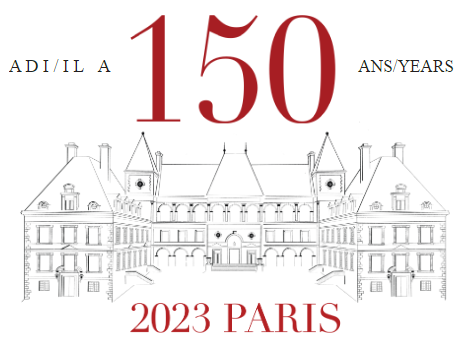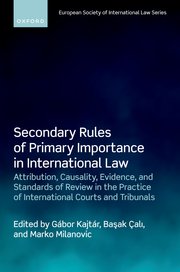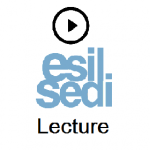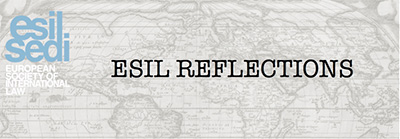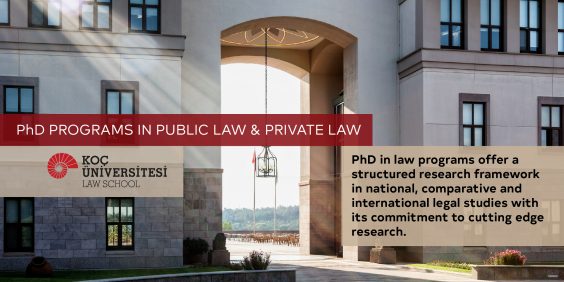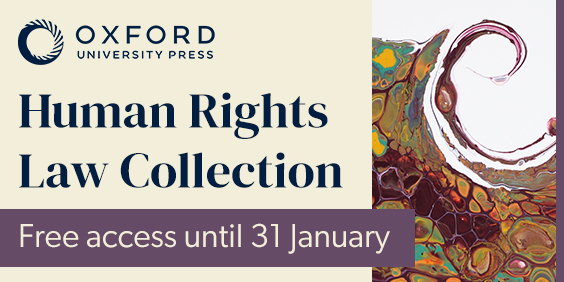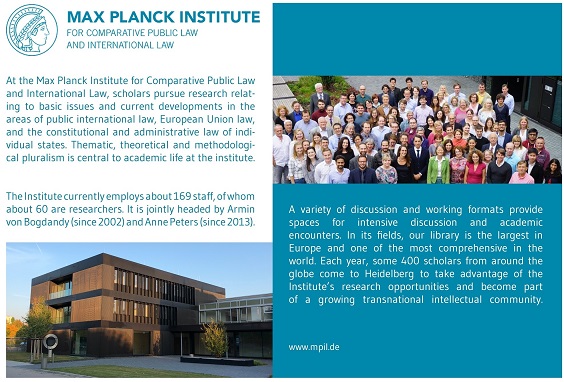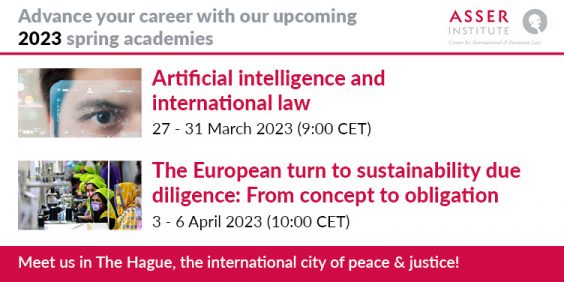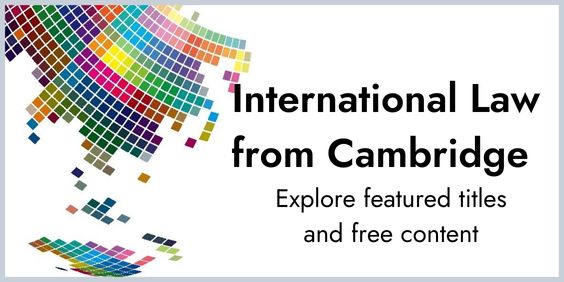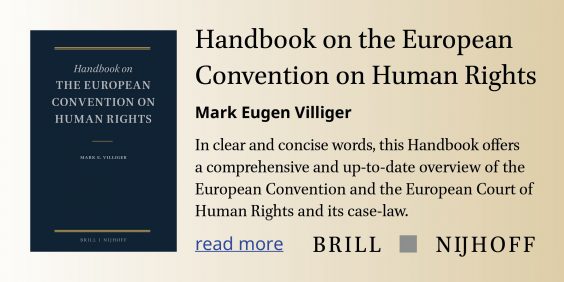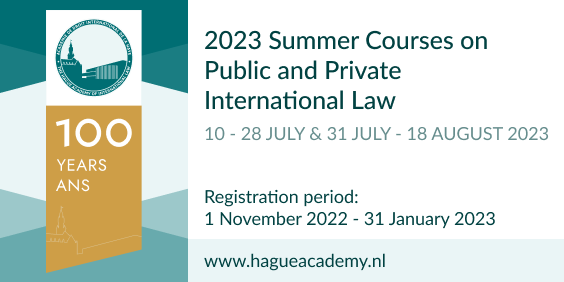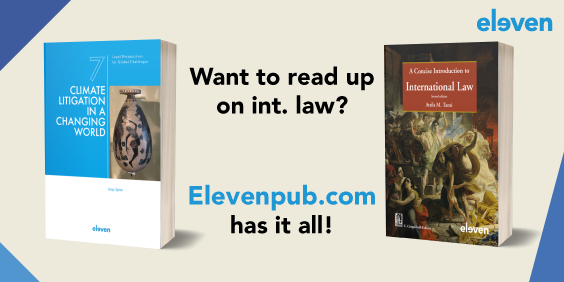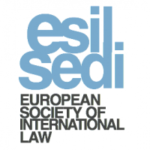ESIL Newsletter – Winter 2023

Editors: Sandrine Maljean-Dubois (University of Aix-Marseille) and Inga Martinkute (Vilnius University)
 In this issue
In this issue
1. Message of the President
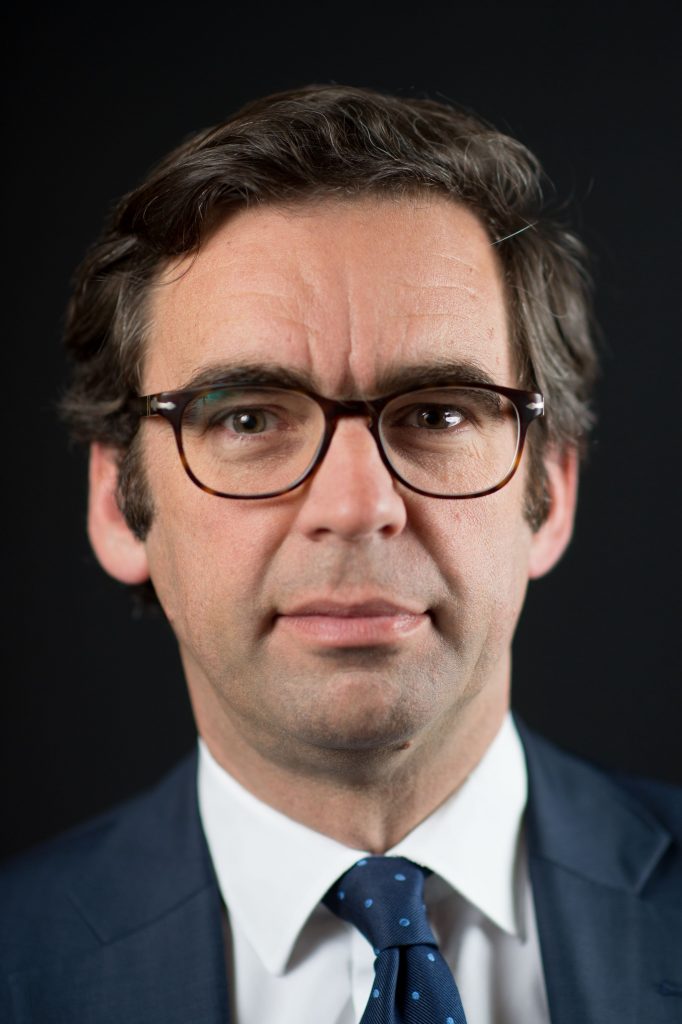
Dear ESIL Members,
The Newsletter has been emailed to ESIL members since March 2008. This is the 55th ESIL Newsletter, and the fourth published during the ongoing disastrous war of aggression against Ukraine.
My only wish for the new year is that this Newsletter be the last one to record, yet again, that this war is being waged. But we know wishes are not self-fulfilling while wars rarely end through benevolence and goodwill, human qualities that do not seem to characterize the master of the Kremlin.
Be that as it may, when the 110th edition of the ESIL Newsletter is published—in a bit less than 14 years—, the war will most likely be over and the world will be much different.
However, ESIL will still be there as the largest, most vibrant and most welcoming learned society of international law in Europe. This is not a hope, but a commitment. It inhabits every member of the Board and is shared, albeit perhaps unconsciously, by every ESIL member who diligently renews their membership. Because this is how we build and grow institutions: incrementally, steadily, year by year, in full acceptance of the fact that something bigger and more lasting than ourselves is in the process of being created and developed. Maybe it is a bit pompous to proclaim that ESIL is or should become an institution while it started—and still rather feels—like a friendly club. But those two dimensions are far from being incompatible; our strength and added value are rather to reconcile them through every event we organize.
This year, like previously, our highlights events will be the Research Forum, held this year in Tartu, Estonia (fast approaching and with a very timely theme!) and the Annual Conference that will gather in Aix-en-Provence, France; you’ll find all the details about them and other forthcoming conferences and workshops in this Newsletter under the usual rubric n°4 What’s Going On?
I look forward to meeting you at one of our events and I thank you for your support, wishing you all a very successful year 2023.
Pierre d’Argent
ESIL President
2. Guest Editorial by Eliana Cusato: Ecology in the war against Ukraine and beyond
As the war against Ukraine drags on, the environment is characterized as another ‘casualty’. First assessments point to significant ecological impacts that could leave the country and region with a toxic legacy for generations. But nature is more than a ‘silent victim’ of military conflicts, something to be protected and cherished. The war in Ukraine has also been fought with energy policies, including the EU import prohibition on Russian oil and the Russian ‘weaponization’ of gas supplies. Calls not to be complicit in ‘Putin’s war’, by consuming Russian natural resources, have multiplied since the conflict’s outbreak. At the same time, fossil extraction has been revived and ramped up in other regions.
The war illustrates that nature, in the form of fossilized carbon resources, remains foundational to a global extractivist economy, despite attempts to decarbonize society. Paying attention to the ecological dimensions of the war against Ukraine (and conflicts beyond that), I suggest, offers the opportunity to reconsider the place of the natural world within international law. How is nature framed in legal norms governing military conflicts and the transition to peace? What could we learn about international law by exploring how it deals with the ‘ecology of war and peace’?
Political scientists, ecologists, and economists have, at least since the 1980s, sought to explain the relationship between environmental ‘scarcity’ and ‘abundance’, on the one side, and authoritarianism, instability, and violent conflict, on the other. Some specific ideas have become popular in international law, influencing how the ‘ecology of war and peace’ has been discussed and addressed so far. Notably, greed theories, emphasizing the economic motivations for starting or prolonging armed conflict, paved the way to commodity sanctions to curb trade in ‘conflict resources’ and ‘good governance’ interventions in countries in the Global South. Here nature is seen primarily as a resource to be appropriated, extracted, and traded in global markets – thereby financing violence and insecurity.
A closer look at rules governing armed conflict illustrates that such a narrow understanding of the natural world is deeply embedded in the field. In the laws of war, the ‘environment’ is treated as instrumental to other, more pragmatic goals associated with warfare. Ideas of nature as public or private property, and as economic asset to be protected from the excess of war, have shaped legal practices since the modern origins of the discipline. The way in which post-WWII tribunals dealt with scorched earth practices and the resource plunder in Nazi occupied territories confirms that the main concern was to establish accountability for conducts that, while degrading the environment, resulted in immediate harm to the enemy’s property and the economic interests of the concerned country (its ‘economic capital’).
More recently, the idea of nature as a ‘victim’ of war has also emerged. Yet, even when framed as a ‘victim’, or ‘casualty’, environmental degradation is acknowledged as a tragically unavoidable sacrifice in relation to the larger objectives of war. That is not to say that concerns about environmental preservation and human well-being have been ignored in legal debates and practices. On the contrary, interpretative efforts to introduce environmental considerations into the laws of war have proliferated over the last decades. Still, as the Nuclear Weapons Advisory Opinion demonstrates, balancing ecological sustainability and militarism/war-making remains a difficult exercise. Warfare is the negation of sustainability and intra/inter-generational equity. While environmental law principles may mitigate the rationale underpinning the jus in bello, they cannot transform it. Even the most progressive legal arguments struggle to reconcile the justifications for preserving nature with the destructive logic of warfare, raising the question of whether there can ever be a reconciliation between these two logics.
Where does this leave us? Environmental disruptions, militarism, and rising inequalities demand scholars to ask uncomfortable questions that illuminate the assumptions entrenched in the field, the law’s alliance with a specific system of values, and the role of our own discipline in restricting the possibility of more ecologically just futures.
3. Meet an ESIL member – Gergő Barna Balázs
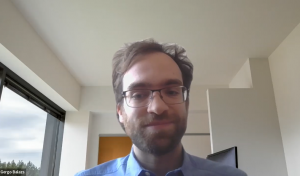
You can find the video introducing Gergő Barna Balázs, MJur student at the University of Oxford and member of the ESIL Early-Career Network Co-ordinating Committee, here.
4. What’s Going On?
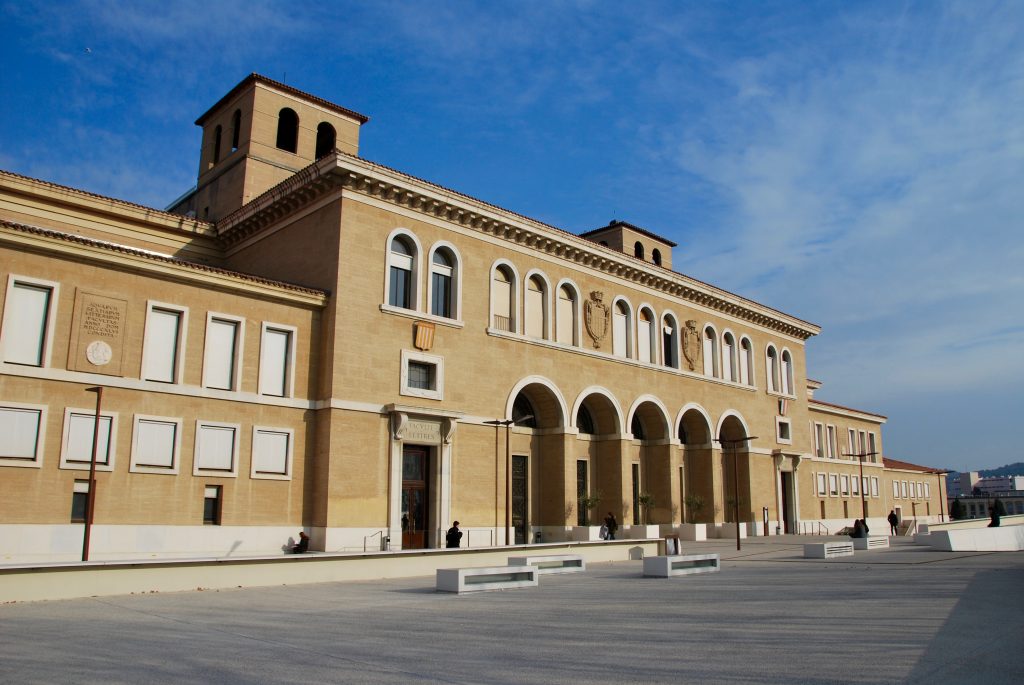 2023 ESIL Annual Conference in Aix-en-Provence – The deadline for the Call for Papers is fast approaching… act now!
2023 ESIL Annual Conference in Aix-en-Provence – The deadline for the Call for Papers is fast approaching… act now!
Is international law fair?
The 18th ESIL Annual Conference (31 August-2 September 2023) will be hosted by Aix-Marseille University in France. The Conference will be preceded by Interest Groups’ meetings to be held on 30 and 31 August.
The theme of the Annual Conference is ‘Is International Law Fair?’.
Fairness is not a unidimensional concept. The same word may have different meanings or scopes depending on what region of the world we are in. Fairness can serve to elucidate important issues pertaining to the universality of legal concepts as well as to the evolution of international law and international society. The theme of the 18th Annual Conference of the ESIL also raises questions as to the values inherent in international law. Are the norms that constitute international law always inspired by ideas of justice and equity? How does one define justice, fairness and equity? Who has the legitimacy to assess international law’s fairness? And according to which criteria? Is the fairness of international law to be gauged based on its objectives, its contents, its consequences or the legal process? Should international law be fair? Can it even be? How influential are contemporary international law theories on the ‘epistemologies of the South’ (Sousa Santos)? And what lessons can be learned from past and current international crises such as the war in Ukraine, the COVID-19 pandemic, or inequality vis-à-vis the harmful consequences of climate change?
Please visit the conference website HERE.
The call for papers is available HERE. The deadline for submissions is 31 January 2023.
 2023 ESIL Research Forum in Tartu
2023 ESIL Research Forum in Tartu
The next ESIL Research Forum will take place on 27-28 April 2023 at the University of Tartu in Estonia. The forum is entitled ‘Regional Developments of International Law in Eastern Europe and Post-Soviet Eurasia’. The research forum website is now available and registration is open until 31 March 2023. More than 60 mostly early career scholars responded to the call for papers and 28 papers were selected. The full program of the conference will be made available in January. The conference will cover topics such as the implications of Russia’s war against Ukraine in international law, Russia’s departure from the Council of Europe and from under the jurisdiction of the European Court of Human Rights, regional integration in post-Soviet Eurasia, selected questions of international investment law and trade law in the region. The program will feature both papers with theoretical ambition as well as new empirical insights in relevant international law and practice.
150th Anniversary of the founding of the International Law Association (ILA) – Series of events
To mark the 150th Anniversary of the founding of the International Law Association (ILA) a series of events are now planned:
- An Inaugural Conference was held on 12 January 2023 that discussed the role of parliaments in enhancing the legitimacy of international law. It was be chaired by Prof. Philippe Sands and Prof. Michael Hahn. See more here.
- A series of webinars that will discuss the white papers that are now published on the 2023 website. See more here and here.
- A hybrid Symposium in Paris on 18, 19 and 20 June 2023. See more here.
- A concluding event on 14 December 2023 (to be announced later).
Registration is now open for all on line events here.
Updates will be sent via the newsletters to which you may subscribe here.
5. ESIL Series
The European Society of International Law Series publishes high-quality volumes on the themes of ESIL Annual Conferences and ESIL joint events. The volumes include chapters that are based on selected papers presented at ESIL events. The chapters may have been revised to fit the theme and focus of the volume, and may have been complemented by additional chapters that address topics that were not fully explored during the events but that are essential for a full coverage of the theme. Volumes in the Series will be subject to a double-blind review process by a high-level editorial board in cooperation with the Series editors, and will be published by Oxford University Press.
In November 2022, a new book was published: Secondary Rules of Primary Importance in International Law, edited by Gábor Kajtár, Başak Çali, and Marko Milanovic.
The focus of this edited volume is the often-overlooked importance of secondary rules of international law. Secondary rules of international law – such as attribution, causality, and the standard and burden of proof – have often been neglected in scholarly literature and have seen fragmented application in international legal practice. Yet the systemic nature of international law entails that coherent and consistent application of such rules is a key element in reinforcing the legitimacy of decisions of international courts and tribunals. Accelerated development of international law and international litigation, coupled with the fragmented nature of the adjudicatory terrain calls for theoretical scrutiny and systemic analysis of the developments in the judicial treatment of secondary rules.
Further books are in the pipeline, including an edited volume on ‘International Law and Universality’. For more information, incl. previously-published titles, please visit the Series webpage.
If you are interested in putting together a volume for inclusion in the series, please contact the General Editors, Christian J. Tams and Veronika Fikfak.
6. ESIL Paper Series
The ESIL Paper Series features papers presented at ESIL events (Annual Conferences, Research Forums, and Interest Group events). Publication in the ESIL Paper Series enables authors to disseminate their work widely and reach broader audiences without the usual delays involved in more traditional means of publication. It does not prevent the subsequent publication of papers in academic journals or edited collections.
The current Series editors are ESIL Board members Adriana Di Stefano, Federica Paddeu and Catharine Titi.
ESIL Papers will be included in the EUI CADMUS Research Repository. The Papers presented at the 2022 ESIL Research Forum in Glasgow are now available! These follow the previous ones presented at the 2021 ESIL Annual Conference in Stockholm and at the 2021 ESIL Research Forum in Catania.
For any enquiries or if you are interested in publishing in the ESIL Papers Series, please send an email to esil.papers@gmail.com.
NOTE: Papers presented at ESIL Conferences from 2011 to 2019 can be downloaded here.
7. ESIL Lectures
The ESIL Lecture Series hosts broadcasts of presentations on international law topics held at partner institutions, allowing the presentation to reach a wider audience of ESIL members and non-members alike.
ESIL lectures are available on the ESIL website and on the ESIL YouTube Channel.
To propose an ESIL lecture, please read the ESIL Conference Series Guidelines.
The recording of the latest ESIL Lectures held at the Belgrade Centre for Human Rights on 5 October 2022 by Ms. Jelena Pejić on the subject of International humanitarian law against the backdrop of the war in Ukraine is now available here.
All previous ESIL Lectures are listed here.
8. ESIL Reflections
ESIL Reflections offer up-to-date reflections on current issues in international law. The Reflections cover a wide range of topics relating to current developments in international law and practice as well as theoretical reflections in a way that is relatively accessible to non-experts. The aim is to foster discussion between ESIL members and international law scholars and practitioners more generally – in Europe, but also beyond. ESIL Reflections are published on this website and distributed freely to ESIL members.
The editors are Federico Casolari, Patrycja Grzebyk (editor-in-chief), Ellen Hey, Guy Sinclair and Ramses Wessel.
ESIL Reflections are short papers (3,000-4,000 words) that argue one particular point that may trigger further debate in the scientific community. Extensive referencing is to be avoided; references are only necessary in case of direct citations or when new or less well-known works are mentioned.
ESIL Members who have an interest in contributing are encouraged to do so. Please contact Patrycja Grzebyk (patrycja.grzebyk@uw.edu.pl) if you would like to contribute.
Copying and reprinting of ESIL Reflections is permitted with due acknowledgement. In such instances, please state: (parts of) this article first appeared as an ESIL Reflection (volume x, issue x), published by the European Society of International Law, www.esil-sedi.eu.
Latest publications are:
- A Moral Holiday: Withdrawal from the Energy Charter Treaty by Jan Klabbers
- The Changing Rivers of Customary International Law: The Interpretative Process as Flux by Başak Etkin
- Common Convictions and the Interpretation of Custom by Ivo Tarik de Vries-Zou
- Custom as Rewritten Law: The Text and Paratext of Restatement Reports by Wouter G. Werner
9. News from Interest Groups
 ESIL Interest Groups are a vital part of the Society’s success and activities. A list of the groups is available on the ESIL website.
ESIL Interest Groups are a vital part of the Society’s success and activities. A list of the groups is available on the ESIL website.
Interest Group on International Economic Law
We were very happy to welcome all speakers and attendees at the conference co-organized in cooperation with the Jean Monnet Chair for EU Integration Studies at Innsbruck University, convened by Prof. Peter-Tobias Stoll, Prof. Elisa Baroncini and Univ.-Prof. Dr. Andreas Maurer on “A Mid-term Review: European Parliament Committee on International Trade (INTA Committee): achievements, challenges & prospects”, on 8 and 9 November 2022 in Brussels and online.
We are now planning other events, including an online workshop on 26 April 2023 at the ESIL Research Forum in Tartu: check regularly the IG’s webpage and follow us on Twitter!


